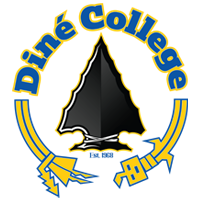
Diné College Professor Publishes Research with American Society for Microbiology (ASM)
August 26, 2022
TSAILE, AZ — Diné College professor was a part of a team of researchers who demonstrated that greenhouse gas-eating microorganisms in caves can disperse across the environment easily. This may help explain ubiquitous observations of subatmospheric methane concentrations in cave-air. greenhouse .Kevin D Webster, PhD Assistant Professor of STEM, and his team examined samples that were collected from 21 different limestone caves throughout North America. Webster says the discovery “helps show that Diné College is a place where active research is happening . It promotes Diné College by demonstrating to students that they can ask and tackle major questions here.”
The story of the discovery, titled Diversity and Composition of Methanotroph Communities in Caves was published in the American Society for Microbiology; Microbiology Spectrum on August 9, 2022.
The project was supported by the U.S. Department of Energy, Office of Science, National Speleological Society, National Geographic Society Expeditions Council, National Science Foundation, U.S. Army Research Office, and the National Aeronautics and Space Administration. Other team members include Arndt Schimmelmann, Agnieszka Drobniak, Maria Mastalerz, Laura Rosales Lagarde, Penelope J. Boston, and Jay T. Lennon.
All data used in this study can be found here https://github.com/websterkgd/CaveMethanotrophs
As a postsecondary educational institution, Diné College awards Associate degrees, Bachelor’s degrees, and Certificates in areas important to the economic and social development of the Navajo Nation. To comply with the College mission, personalized instruction is guaranteed to each student because of the low student-faculty ratio. All are welcome to apply.
